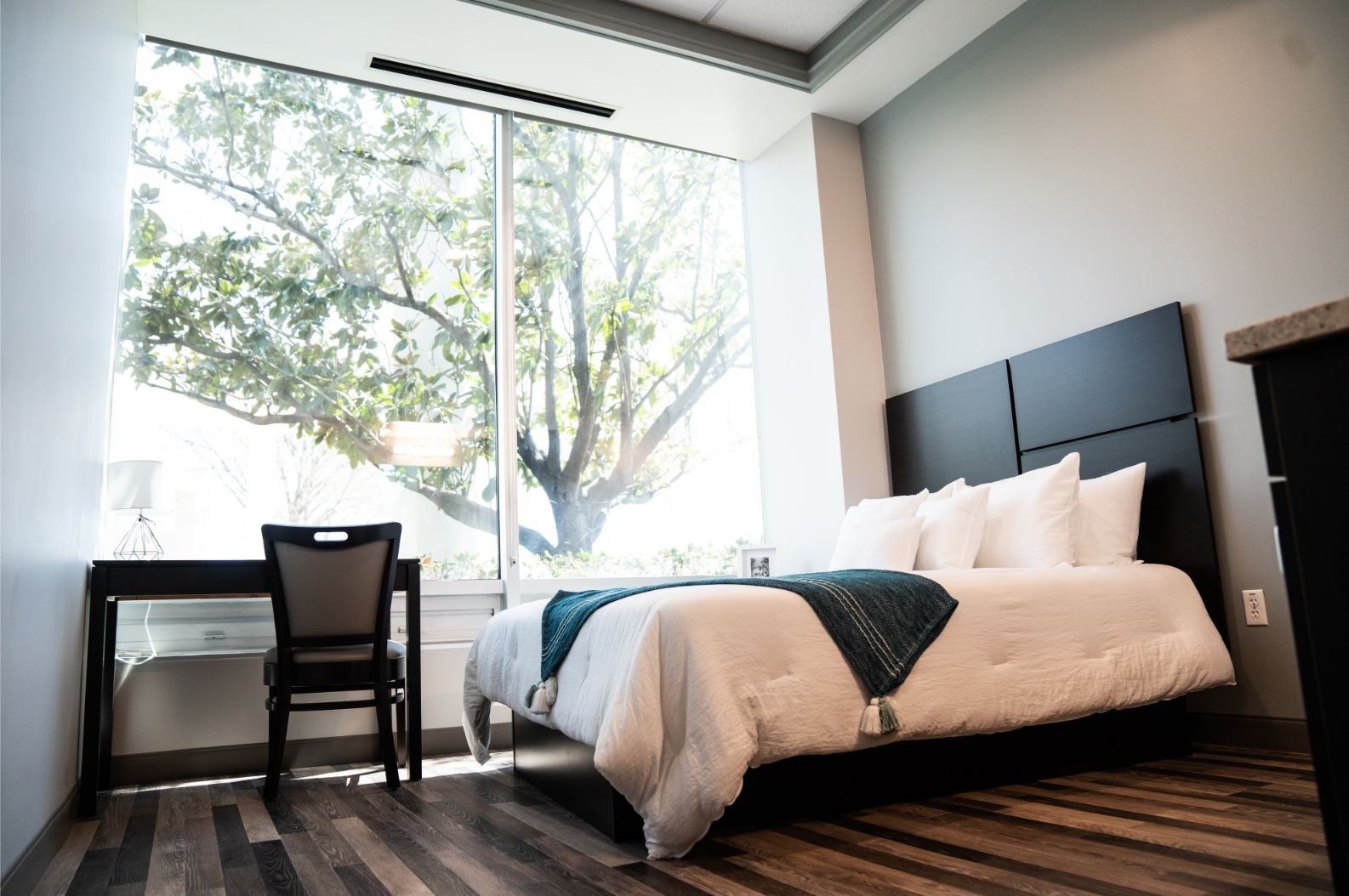Sober Living
Lack of a stable, alcohol and drug free living environment can be a serious obstacle to sobriety and abstinence from drugs and alcohol. Distractive and destructive living environments can derail recovery for even highly motivated individuals. Sober living houses (SLHs) are alcohol and drug free living environments for people attempting to abstain from alcohol and drugs. They are a great support to the continuum of care that strengthens sobriety. They are not licensed or funded by state or local governments and the residents themselves pay for costs. The philosophy of recovery emphasizes 12-step group attendance and peer support.
Sober living houses provide structure and most have these essential characteristics: 1) an alcohol and drug free living environment for individuals attempting to abstain from alcohol and drugs, 2) no formal treatment services but either mandated or strongly encouraged attendance at 12-step self-help groups such as Alcoholics Anonymous (AA), 3) required compliance with house rules such as maintaining abstinence, paying rent and other fees, participating in house chores and attending house meetings, 4) resident responsibility for financing rent and other costs, and 5) an invitation for residents to stay in the house as long as they wish provided they comply with house rules.
Most sober living homes conduct random drug testing to ensure the home is drug-free. The frequency of drug testing varies and is up to the discretion of the staff. Drug testing is usually conducted daily at the beginning of your stay, and may gradually taper off after you have been sober for a period of time.
While most sober living houses use a house manager model where the owner or manager of the house develops and enforces the house rules, some houses have a “residents’ council,” which functions as a type of government for the house.
Recovery Philosophy in Sober Living Houses
Residents are usually required or strongly encouraged to attend meetings and actively work a 12-step recovery program. You will be asked to obtain a sponsor, practice the 12 steps, and volunteer for service positions that support meetings. However, some houses will allow other types of activities that can substitute for 12 step groups, provided they constitute a strategy for maintaining ongoing abstinence.
Developing a social network that supports ongoing sobriety is also an important component of the recovery model use in sober living homes. Residents are encouraged to provide mutual support and encouragement for recovery with fellow peers in the house. Those who have been in the house the longest and who have more time in recovery are especially encouraged to provide support to new residents. This type of “giving back” is consistent with a principle of recovery in 12-step groups.
We Accept Insurance:
The cost of addiction treatment can prevent some people from seeking out the treatment they need. There are a variety of options that can help cover the cost of treatment, including:
- State and locally funded addiction treatment programs
- Substance Abuse and Mental Health Services Administration (SAMHSA) grants.
- Medicare and Medicaid
- S. Department of Veterans Affairs
Many treatment programs may cost-prohibitive for a large number of people. As a result, many people who may be ready to get help for their addiction put off treatment, which means that those people may decide to not get help at all. To make sure that treatment is attainable when it is needed, there are public assistance options that can offer these people the financial support they need to begin the recovery process.
Health insurance is not required to get the care you need for your addiction treatment. Even if you are insured, you may wish to pay cash for drug rehab instead of filing insurance claims and worrying about treatment authorization and coverage. The National Institute on Drug Abuse (NIDA) reports that 23.5 million people over the age of 12 needed treatment for a drug or alcohol abuse problem in 2009. Unfortunately, only 11.2 percent of these individuals sought treatment for their condition.
If you suffer from an alcohol or drug abuse issue, it’s important to get the help you need to live a healthy, well-balanced life. There is hope in the form of addiction treatment. Private pay rehab centers are located across the country, making high-quality drug abuse treatment an option for many individuals.
Outreach, screening, assessment and referral (OSAR) centers may be the first point of contact for people seeking substance use disorder treatment services. Texas residents who are seeking services and information may qualify for services based on need. OSARs are now located at local mental health authorities in all 11 Texas Health and Human Service regions. For immediate and confidential help, 24 hours a day, seven days a week, please call the OSAR LMHA in your region. Counties served by each OSAR are listed below the contact information in the list of OSAR LMHAs. You may also call or contact 211 Texas. Dial 2-1-1 or call 877-541-7905.
Please check with your provider for coverage.

